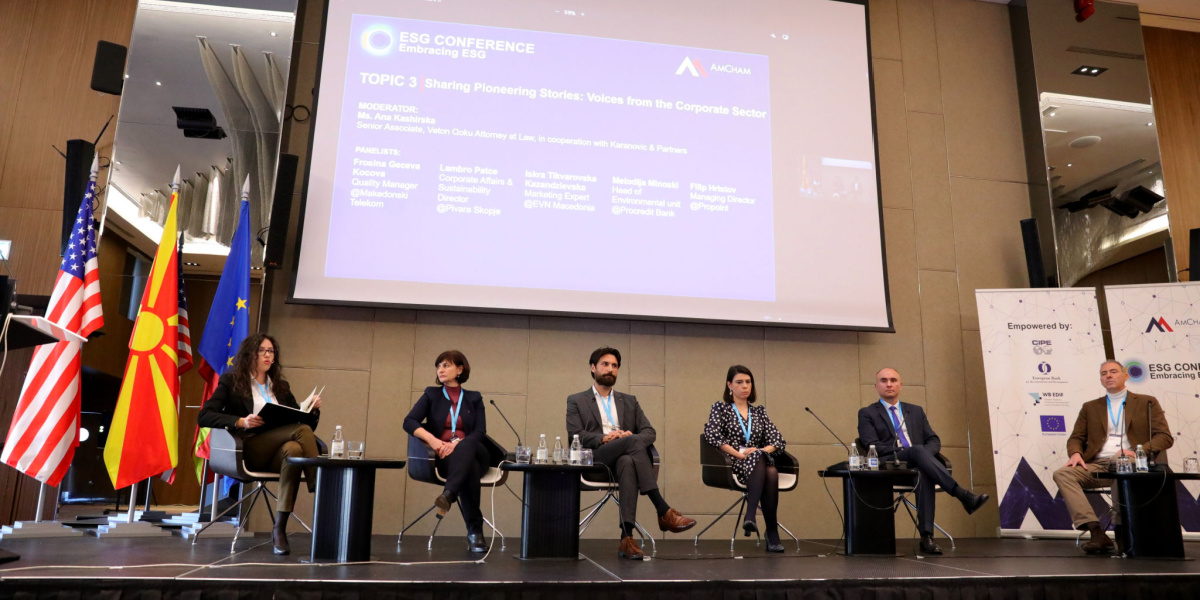Environmental, social, and governance (ESG) issues have traditionally been of secondary concern to business, however we are glad that things are changing and AmCham is paving the path toward that change. Nowadays, we are proud that our members are already engaging and implementing projects and best practices that contribute to ESG factors.
AmChams in Europe, an umbrella organization of 46 AmChams from 44 countries in partnership with the Washington, DC-based Center for International Private Enterprise (CIPE) have begun collecting feedback from all AmChams on how American, European or local companies contribute to the development of local communities by contributing to the ESG factors in order to help building back trust in the local communities. CIPE is an affiliate of the U.S. Chamber of Commerce and works with local partners around the world to craft business-driven solutions to socio-economic problems that affect millions of people.
This initiative seeks to go beyond traditional examples of corporate social responsibility (CSR) or philanthropy such as donating money or volunteering, and hence examples must be linked to the company’s core operations and relationships with its local supply chains and communities, with an emphasis on how it has contributed to strengthening local trust in business.
AmCham North Macedonia has submitted 3 projects that companies have implemented around environmental, social, and governance (ESG) factors, or standards that they have adopted regardless of local government regulations, that are aimed toward the achievement of sustainable growth of not only businesses but society as a whole.
The three projects are as follows:
Alkaloid Skopje – Photovoltaic Power Plant with installed power Pinst = 340.2kWp on building B, PC Pharmaceuticals
EVN – Reducing air pollution in North Macedonia – Popularization and enabling of e-mobility
PIVARA Skopje – Sustainability Initiative: ‘World Without Waste’
The best examples submitted across all AmChams will be chosen to be to developed into a longer case study that describes what issue the company addressed, the local context, positive outcomes and impact, and lessons learned. All the case studies will be published in an e-brochure and the companies will be featured at a virtual event later this year to showcase their work in the region.





